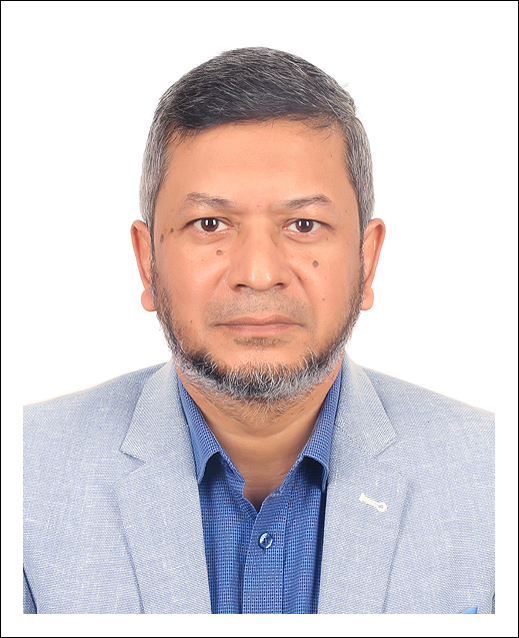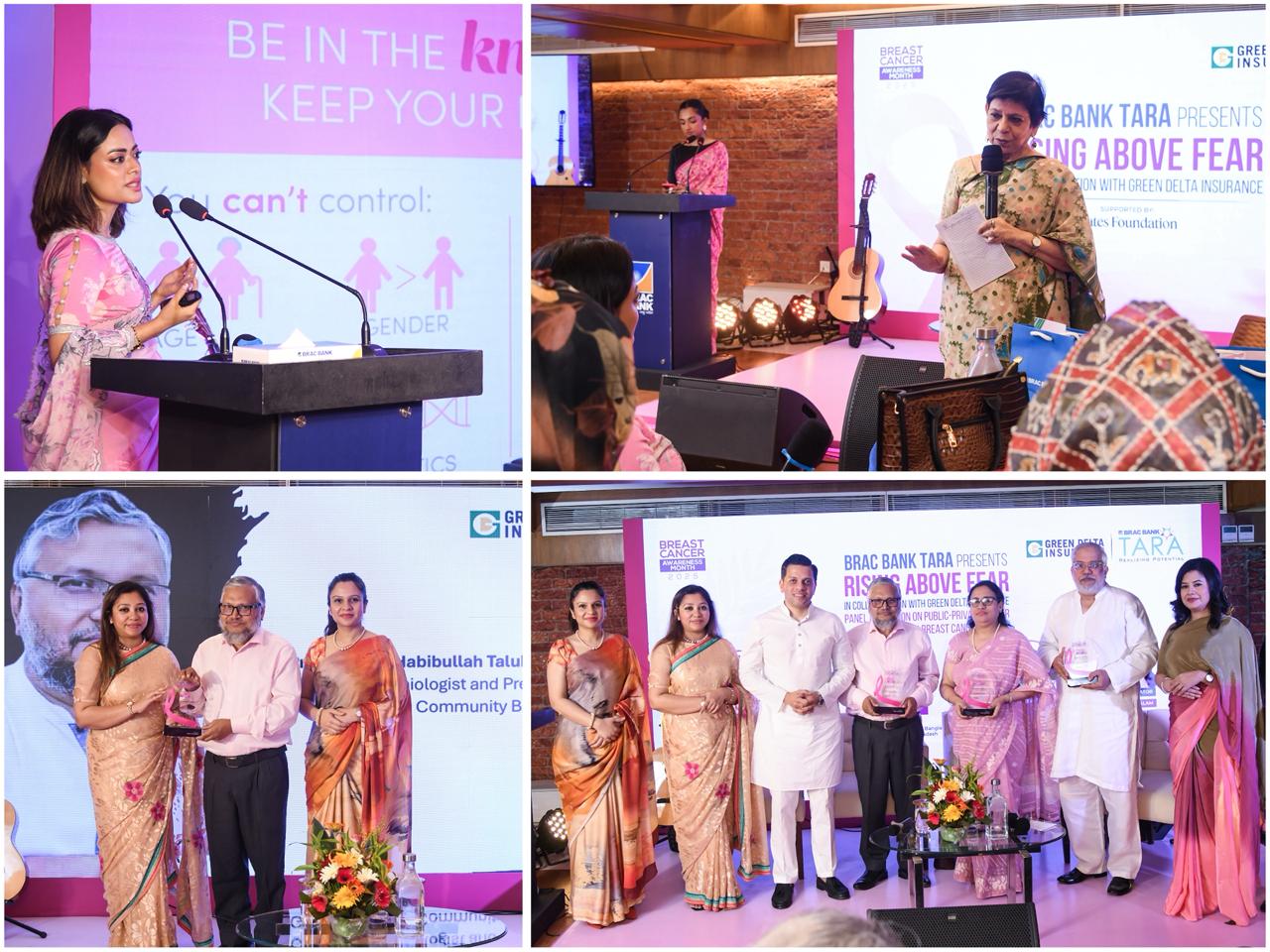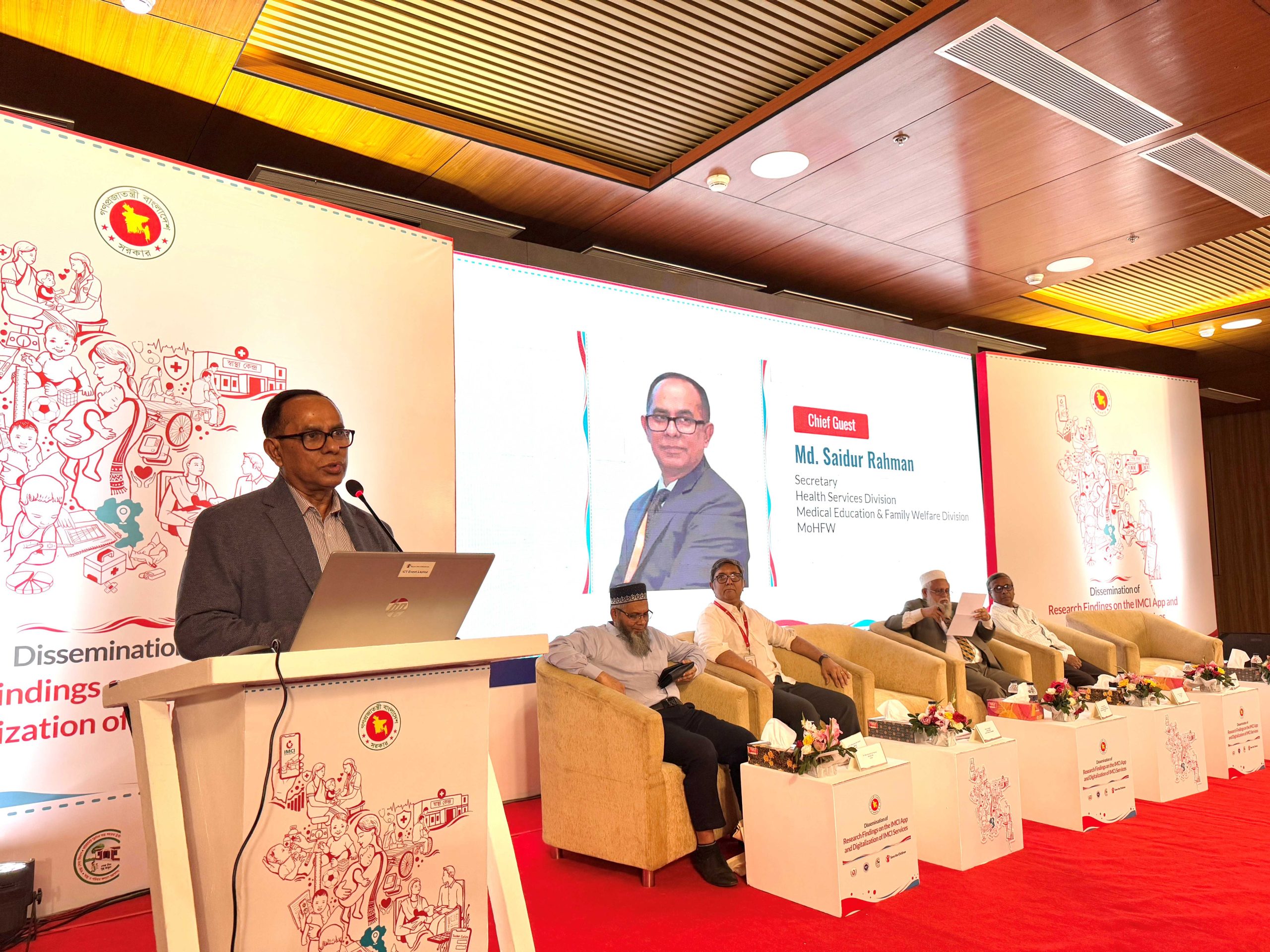GREENER GROWTH, GREATER RESPONSIBILITY
*Dr. Atiq Rahman on Climate Negotiations, Public & Private Initiatives for Climate Change Adaptation
What’s your take on the current climatic situation of Bangladesh? Based on the situation what should be the priority of the new government regarding climate change and environmental preservation?
On the environmental issue, there are a number of situations. Number one we are a highly populated country, one of the densest populations in the world: more than 11000 people per sq. meter. It is daunting. In spite of having such dire conditions we have been doing well in maintaining harmony between people; we are not pushing or killing each other. But on the other hand, we are encroaching on our agricultural land. Having said that, we’ve been a country with tremendous success in agricultural productivity. A great demonstration of not only GDP growth rate, but we’ve also been successful in reducing our population growth. Nevertheless, our air and water pollution have increased tremendously, and most of our rivers especially those around Dhaka and Chittagong cities are highly polluted. We have a challenge with maintaining our sedimentation, due to which rivers and canals are getting clogged. We have recovered our aquatic productivity of fish but we have lost some biodiversity in our fishery products. The major cities are becoming concrete jungles, and Dhaka is the second worst city in the world in terms of air quality. It Is surprising that most of it are because of particle matters that come from the brick kilns in the real estate and construction sector and the vehicles which are mostly stagnant due to heavy traffic during peak hours. One of the recent sciences is very dangerous which says that air pollution is not only a threat to our lungs, but it is also undermining the growth of children, particularly their intelligence. These impurities are hurting your lungs and the growth potential and intelligence of children as a whole.
We have to take very aggressive measures to get over this, and that means the challenge for our government to improve the environment is huge. Our Ministry of Environment, Forest and Climate Change has been inundated with 3 major responsibilities – environment, forestry, and climate change. I strongly believe that climate change itself is a massive responsibility and therefore, a separate ministry should be formed to deal with the issues of climate factor, adaptation, and mitigation, technology and opportunity. This ministry can work harmoniously with other ministries on the topics of environment, forestry, water, agriculture, etc.
Speaking of climate change. How vulnerable are we due to this menace?
There are 12 identified impacts of climate change on Bangladesh, which makes it a unique country. We have to face reality. Good news is over time our understanding of the subject matter and the capacities to negotiate have improved significantly. The government and the civil society are working closely together. Sadly, the private sector has not been too engaged, though they should be in the processes of both adaptation and mitigation. In mitigation, we are moving quite well. In the energy sector, a movement that I started with adopting photovoltaic electricity has been tremendously successful. It has now reached 5.4 million households, which have several hours of light in the evening with the aid of solar panels. This is a major achievement in the world, which was made possible by the poor and eventually the market has taken care of it. We initially tried our best to create a market so the whole process becomes market driven. In the energy sector, our electricity production has increased tremendously which has been an achievement of the government. In the industrialization process our garment industry has moved quite far and advanced – a story of delight and pleasure is to see that out of the world’s 10 best green textile garment companies, 7 are in Bangladesh – this is a bigger achievement. With IFC we have worked on 200 industries, and they have succeeded in reducing their greenhouse gas by 13% and reduced the consumption of both water and electricity by 20% in their respective field. All this was achieved by better practice of good industrial behavior.
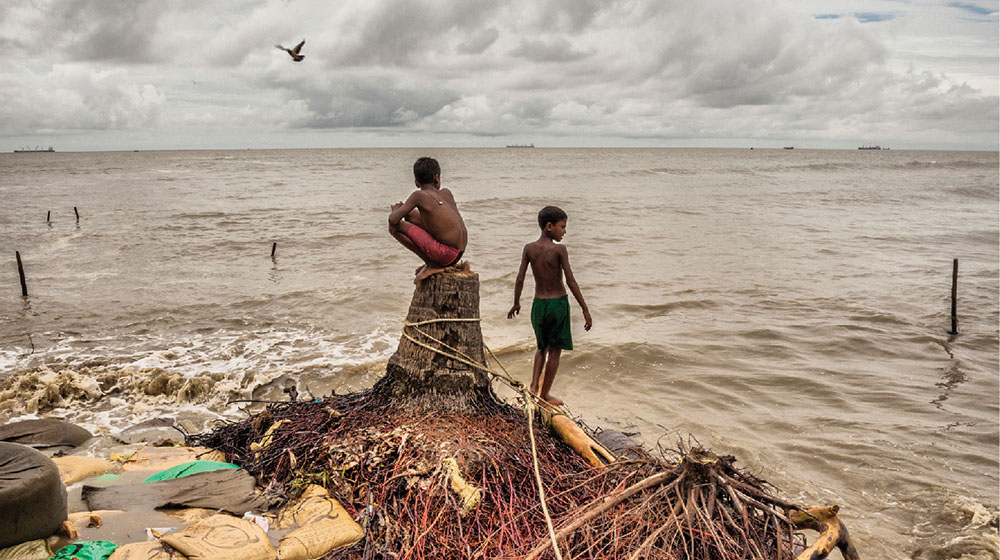
On the subject of urbanization; our leather industry is coming up but it still continues to pollute and has to be free of pollution. Similarly, our pharmaceutical industry, before there are any complaints about them, we must make sure that does not happen because of the tremendous potential that our pharmaceutical industry has must be protected.
What are the setbacks you have observed due to urbanization?
The lessons learned from Dhaka city are not pleasant. It is a concrete jungle with little open space and houses are at a handshake distance away from each other which is neither healthy nor good. It has become a heat island because of the huge concrete roads and walls that we’ve created. We must do urban barrier agriculture better so that we increase the greenery and water supply. I for one believe that we should not just think of Dhaka as an urban area, the whole of Bangladesh should be a huge urban center.
Why do we have an urban conglomerate? Because it brings in certain facilities within the reach of physical contact of people and these include access to areas of education, health, food, good atmosphere, environment and access to services and powers. We should decentralize this urbanized attitude, and digitize the whole country. The practice and the policies of the government has given everyone access to electricity, power like political power and power like electricity. University, school, colleges and all available citizens of the country are receiving electricity. We are so densely populated, that there is no rationale for not being an urbanized country. That is the vision I have, and it is within our reach, and within our possibility.
What measures can we take to better conserve our agricultural lands?
One of the ways to save our agricultural land is to make a multistoried housing in the village sector. There are reservations that people won’t be comfortable with that. We’ve learned to live in multistoried housing in Dhaka and half the people of Dhaka are connected to the villages. Bangladesh is not really an urbanized place, it is in a world of rural-urban connectivity and interaction. This urban-rural linkage must be strengthened. Our Padma bridge, Bangabandhu bridge, Jamuna bridge gives us those opportunities to connect the whole country through a very good network. Railway must be strengthened so that we don’t have to depend on a bus in the transport sector, and our riverine transport must be made much more pleasant, organized, modern and effective.
In economic terms, we are on the move. We are moving out of least developed country status and going into low-middle income country to high-income country status. There will be few bits of compulsory mechanisms but we can overcome those very easily. We should be moving according to the government and population agreed upon national vision of becoming a middle-income country by 2021 then a high-income country by 2041 onto becoming a rich country. It will not be very rich like Europe but we will be on the rich side among developing countries. That’s a vision people can work on. One of the things right now is the need for quality in education. Quantity can be achieved but the quality is very hard to achieve. Our school education is poor. Our primary teachers should get the highest salaries so that we have the best teachers in the world going to primary education and bring out the fruition of the intellectual content of every individual. And those who are the best they will go up. Our second and top priority must be on technical education, to give competence to the whole population in terms of finding jobs which are needed in the forthcoming world of IT and Robotics, of new jobs and new industries. There is no way to shy away from those opportunities as well as challenges. That can only happen if we train our youth to become more technically orientated and qualified with technical education and embrace the modern world of computing and science. We don’t have to make them masters and PhDs and BBAs and MBAs with jobs. The linkage between the students and the industries and the linkage between the students and real-life jobs has to be created and taught in the universities and colleges, even in the schools. It has to be a work-oriented environment and much more enlightened. Sadly we are not putting too much effort into it yet. We must emphasize on decreasing our population growth rate even further, and the country’s political process must be much more harmonized so that young people are attracted to get into the political world, not party politics, but a politics of patriotism, of helping the country which they are already doing but in a much more structured way.
Do you think the policy makers of our country are fully aware of the perils of the climate change or they know the ins and outs of the climate change so they can make good negotiations and deals? Do you think they are well aware and what can we do in regards to that?
Let me give two different responses. Amongst all the political parties there is usually no difference in regards to two concepts. One is poverty reduction. Second is climate change. All of them realized from their daily experience, whether it is observing in their own backyard that the flowers that are supposed to be growing are not growing in the time they are supposed to grow. This is true about kodom-ful. It is an experience they are going through, and they know that climate change has hit our coastal areas which has at least 6 hotspots. The coastal area, the central flood plain, the Parinther track is drought prone, the Hawor area is flood prone, and our hilly areas are extremely vulnerable to deforestation and rapid landslide. All that given we have an altogether separate set of complexities from sea level rise, an intrusion of saltwater, flood, drought, lightning to landslides to everything. Our people, politicians and policy makers are aware of that. What can they do about it is a different issue. We’ve learned the tricks of the trade of addressing the disasters which are the extreme events but on an average what can we do with climate change is a frightening issue. We can’t do much about reducing greenhouse gas emission, but we can do a lot on adaptation. Ordinary people in the coastal areas, in the drought prone areas are doing enormous amount of work. We did some calculation, the poor are paying more than 2 billion dollars to protect themselves against the onslaughts. People are contributing but this is not a contribution they want to be forced upon them, and it is the rich countries additional emissions that are creating all these problems.
Bangladesh being stuck in a geographical area; only 8% of the water that passes through Bangladesh falls vertically on Bangladesh, and the rest comes from outside. We have little control on water flow. Because of the change in the Himalayas and the increased precipitation, our sediment load is increasing, our rivers are getting flattened. But, at the same time we have succeeded in growing our rice crop. There is an agricultural revolution, a fisheries revolution, a poultry revolution going on, and ordinary people are doing it, so a tremendous amount of progress has been made but do the policymakers know all the answers? Unfortunately not. Science doesn’t give all the answers yet, but science is telling us all the warnings right now so we have to work together with other countries to make sure. In terms of negotiation skills, it has improved significantly and is better than before and getting there but climate change cannot be put into a small unit in a ministry, it should be a ministry by itself. That is something I’ve been propagating for some time now. There are a number of other opportunities that we can take, and improve and reduce poverty at the same time.
Is it true that we weren’t efficient in using the climate finance we received?
That’s not true. There is a climate finance mechanism that is emerging. There aren’t projects just waiting there for us. We have to write proposals, we have to fight it out, we have to go there and get it, and it has to be a combined effort. Now for the first time, there are two groups that have been identified to write these proposals, it calls for mitigation and adaptation. Their job is not to write proposals for themselves. They are working for the whole country so they have to involve and ensure that everyone participates in developing these concepts and proposals, they have to be innovative, climate-relevant, termed in a very specific way. Not many people can do that, there are only 5-10 people in Bangladesh and they have to be used optimally. There are also credibility questions in terms of financial accountability, and transparency has to be established, and that can’t be done by a single person. There are a significant number of technical people and personalities of climate change in Bangladesh that should be used optimally.
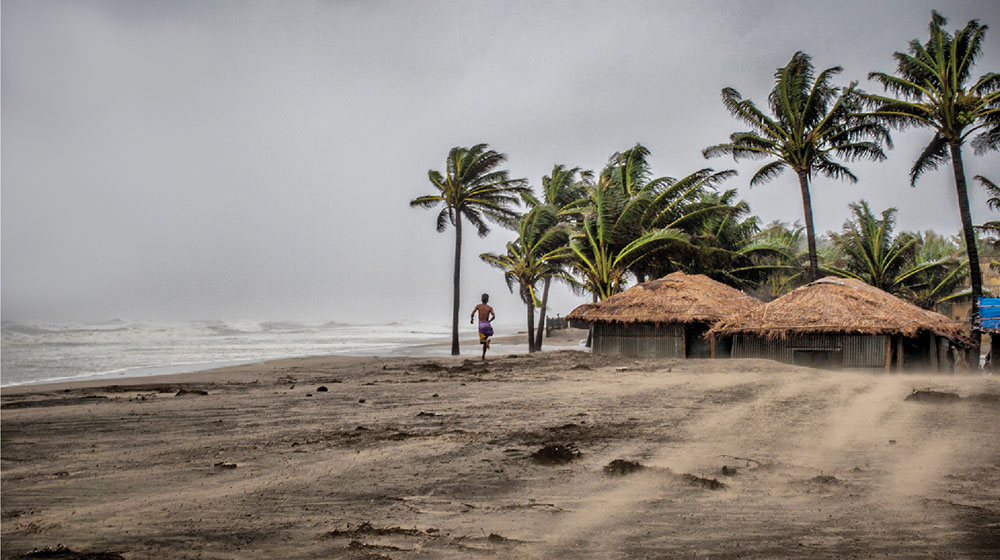
What your take on the recent Cop summit? Do you think it ended on an optimistic note?
The Cop 24 has just finished in Poland. I am pleased to see that it has ended, but it hasn’t addressed all the questions. The rich countries are in no mood to make the sacrifices they need to do. Their right to live will depend on how they behave. Countries like the U.S. and Russia, Saudi Arabia, Kuwait has not really behaved as part of the civilized community, so they have to learn to do better than that. 200 countries have reasonably agreed to do something. Remember this Cop was supposed to be very mundane because it’s writing a rule book. Rulebook writing is how do we work the Paris Climate Treaty, sadly the Paris agreement is extremely weak for the purpose that the planet needs. It has been further weakened by Cop 24 where they wanted to write a rulebook which should have strengthened the case. Our recent study by the Intergovernmental Panel of climate change on 1.5 degree shows that we must act literally within 20-25 years, and we must act vigorously and rigorously to overcome some of the basic challenges facing the planet. It doesn’t emphasize that, and it takes the lowest common denominator and manages to keep the system floating. So that will not do the trick. In between this Cop and the next Cop next September, there are hopes that heads of states and heads of governments will make a further commitment, but climate change is a complex and challenging system. Most rich countries don’t want to give up their way of life, or their energy systems but the good news is that opportunities already exist by which we can overcome these problems. Bangladesh would definitely need adaptation.
You’ve mentioned the statistics where private RMG factories have reduced their pollution and enhanced their productivity. How can we engage the bigger private sector as whole in this climate change dialogue or make them aware so that they come up with preventive measures instead of curing the existing system?
Perhaps the sector as a whole has a problem. They have to ensure they make a significant profit before they can jump in a project. Climate change is required for their own survival, so they have to do it and they have to calculate their own survival into this equation. It will never be guaranteed that they will make those opportunities, but investing in energy efficiency, in renewable energy, in improving the infrastructure for protecting the country from the onslaught of climate impact is absolutely vital. It is in the interest of the private sector to engage in this process. One of the ideas of Cop 24 has been to recreate. You know there was a climate market of carbon emission that was emerging 10 years ago in the Kyoto Protocol. Sadly that was quelled by the rich countries so once carbon levy was 30 dollar per ton, it has now become 30 cent a ton. Now they are trying to reinvent the market. Too many people have been hurt in the process, and slow to pick up but the market will come to the private sector will be able to play their role. The earlier the better, later many of the private sectors will have to disappear sadly because they won’t have the opportunity and the luxury which is going to be very tough for countries both rich and poor.










